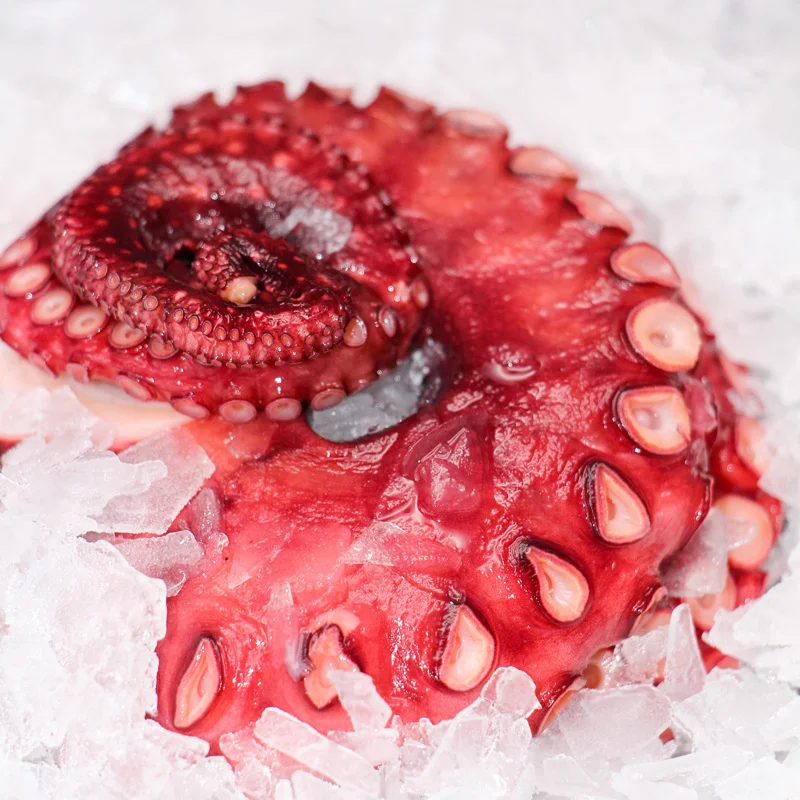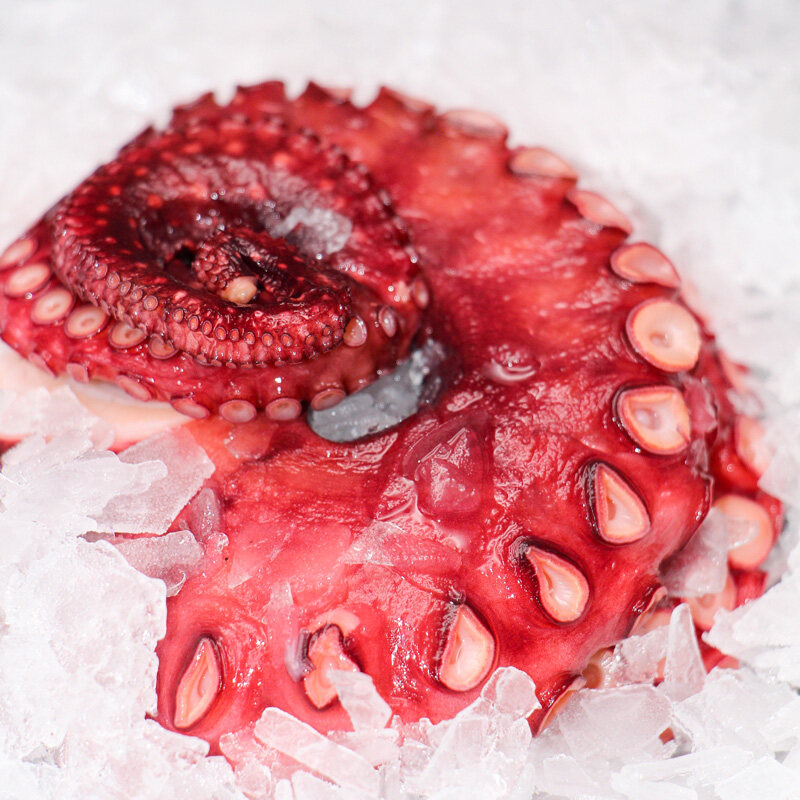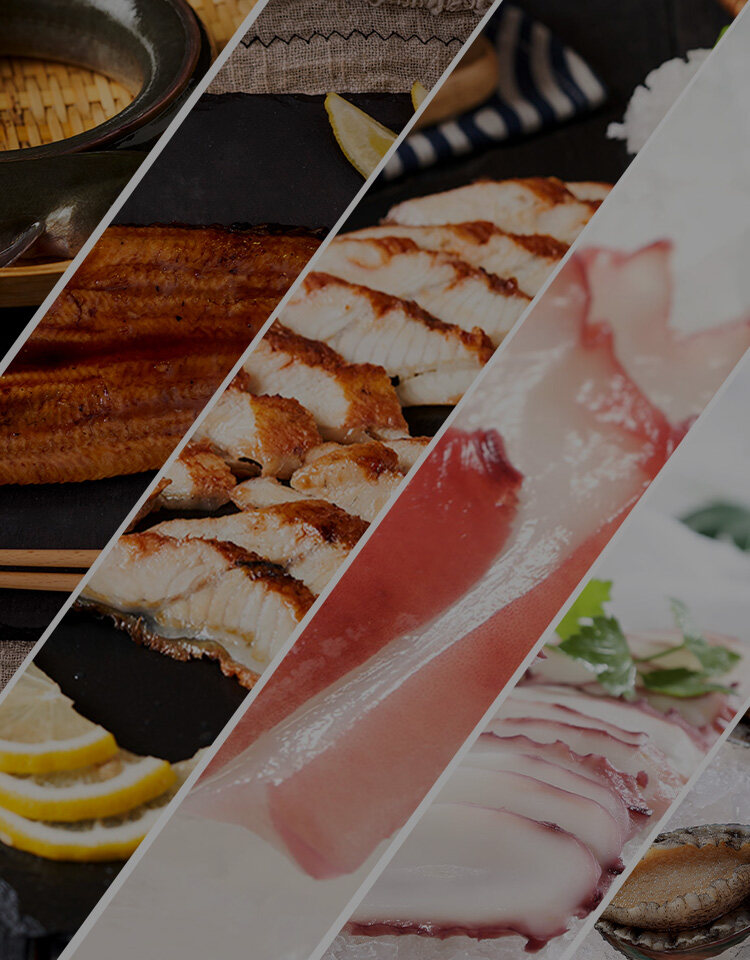Email cannot be empty
Password cannot be empty
Email format error
Email cannot be empty
Email already exists
6-20 characters(letters plus numbers only)
The password is inconsistent
Email format error
Email cannot be empty
Email does not exist
6-20 characters(letters plus numbers only)
The password is inconsistent


The Ultimate Guide to Grilled Frozen Octopus: From Freezer to Flame
When it comes to seafood, octopus is one of those ingredients that can be a bit intimidating, especially if you're not used to working with it. The thought of preparing a dish that involves an eight-armed mollusk might seem like a culinary adventure reserved only for professional chefs. But what if I told you that grilling octopus, particularly frozen octopus, is not only easy but also incredibly delicious?
Yes, you read that right. Grilled frozen octopus is a thing, and it’s a fantastic way to enjoy this delicacy without the hassle of dealing with a fresh octopus. In this guide, we'll walk you through everything you need to know to master the art of grilling frozen octopus, from choosing the right product to achieving that perfect charred finish.
Why Choose Frozen Octopus?
Before diving into the grilling process, let’s address why you might want to choose frozen octopus over fresh. First and foremost, frozen octopus is often more readily available and more affordable than fresh octopus, especially if you don’t live near the coast. Freezing also has the added benefit of tenderizing the meat, breaking down its tough muscle fibers during the freezing process. This means that grilling frozen octopus can actually yield a more tender result than using fresh octopus.
Another advantage is convenience. Frozen octopus is usually cleaned and prepped before freezing, so when you’re ready to cook, much of the work is already done for you. No need to worry about cleaning or gutting; just thaw and cook!
Preparing Your Frozen Octopus for the Grill
To get the best results, proper preparation is key. Here’s how to do it:
Thawing: The first step in preparing your grilled frozen octopus is to thaw it. The best way to thaw octopus is slowly in the refrigerator overnight. This gentle method ensures the texture remains intact. If you're in a hurry, you can also place the sealed octopus in a bowl of cold water. Avoid using warm water or the microwave, as these can affect the texture of the meat.
Tenderizing: Even though freezing helps tenderize the octopus, you might still want to tenderize it further, especially if you're working with a particularly large octopus. One traditional method is to give it a few good whacks with a meat mallet. Another way is to simmer the octopus in water with a splash of vinegar or wine for about 30-40 minutes before grilling. This step is optional but recommended if you prefer a super tender octopus.
Seasoning: Octopus has a mild, slightly sweet flavor that pairs well with a variety of seasonings. Before grilling, lightly coat the octopus with olive oil, salt, and pepper. You can also add herbs like oregano or thyme, garlic, and a squeeze of lemon juice for extra flavor.
Grilling the Octopus
Now comes the fun part—grilling! Grilled octopus is all about getting that perfect balance between a smoky char on the outside and a tender, juicy interior. Here’s how to achieve it:
Preheat the Grill: Whether you're using a charcoal grill or a gas grill, make sure it's preheated to medium-high heat. You want the grill hot enough to sear the octopus but not so hot that it burns.
Grill the Tentacles: Start by grilling the tentacles first. Place them directly on the grill grates and cook for about 2-3 minutes on each side. You’re looking for those beautiful grill marks and a slightly crispy exterior.
Cook the Body: After grilling the tentacles, cook the body of the octopus. The body, or mantle, is thicker and may require a bit more time on the grill. Grill it for about 4-5 minutes on each side, until it’s nicely charred.
Finish with a Baste: While the octopus is grilling, you can brush it with a simple marinade or basting sauce. A mixture of olive oil, lemon juice, garlic, and herbs works wonderfully. This adds extra flavor and helps keep the octopus moist.
Check for Doneness: Octopus is done when it’s tender and the edges are slightly crispy. You can test it by piercing a tentacle with a fork—it should slide in easily without much resistance.
Serving Your Grilled Frozen Octopus
Grilled frozen octopus is incredibly versatile and can be served in a variety of ways. Here are some ideas to get you started:
As a Starter: Slice the grilled octopus into bite-sized pieces and serve it as an appetizer with a side of lemon wedges and a sprinkle of sea salt. You can also pair it with a tangy aioli or a simple garlic dip.
In a Salad: Grilled octopus makes a fantastic addition to salads. Toss it with arugula, cherry tomatoes, red onion, and olives, and dress with a lemon vinaigrette for a refreshing, light meal.
As a Main Course: For a heartier dish, serve the octopus with roasted potatoes and a side of grilled vegetables. You can also pair it with a warm quinoa salad or a bed of couscous for a Mediterranean-inspired meal.
On Skewers: If you’re serving a crowd, consider skewering the octopus with vegetables like bell peppers, onions, and cherry tomatoes. Grill the skewers and serve as a fun, easy-to-eat dish.
Pairing Suggestions
Grilled frozen octopus pairs beautifully with a variety of wines and beverages. Here are some suggestions to elevate your meal:
White Wine: A crisp, dry white wine like a Sauvignon Blanc or a Pinot Grigio is a classic choice. The acidity of the wine cuts through the richness of the octopus and complements its subtle sweetness.
Rosé: If you prefer something a bit more robust, a chilled glass of rosé works well. The fruity notes of the wine balance the smoky flavors from the grill.
Beer: For beer lovers, a light, citrusy beer like a Belgian Witbier or a Hefeweizen pairs nicely with grilled octopus. The beer’s refreshing qualities make it a great match for seafood dishes.
Non-Alcoholic Options: If you’re looking for a non-alcoholic option, try serving your grilled octopus with a sparkling water infused with lemon or lime. The bubbles and citrus notes will enhance the flavors of the dish.
Troubleshooting Common Issues
Even though grilling frozen octopus is relatively straightforward, you might encounter some challenges along the way. Here’s how to address them:
Tough Octopus: If your octopus turns out tough, it might not have been tenderized enough. Next time, try simmering it longer before grilling or giving it a good mallet whack beforehand.
Overcooked Octopus: Overcooked octopus can become rubbery. To avoid this, keep a close eye on the grill and don’t leave the octopus on the heat for too long. Remember, it only needs a few minutes on each side.
Burnt Exterior: If the exterior is burning before the inside is cooked, your grill might be too hot. Lower the heat slightly and move the octopus to a cooler part of the grill to finish cooking.
Final Thoughts
Grilled frozen octopus is a dish that brings the flavors of the ocean right to your backyard. With its smoky, charred exterior and tender, juicy interior, it’s a meal that’s sure to impress your family and friends. And the best part? It’s much easier to prepare than you might think.
Whether you’re a seasoned chef or a grilling novice, this guide should give you the confidence to try your hand at grilling frozen octopus. Remember to take your time with the preparation, pay attention to the grill, and don’t be afraid to experiment with different seasonings and serving styles. Before you know it, you’ll be whipping up grilled octopus like a pro, turning your kitchen or backyard into a gourmet seafood haven.
So the next time you’re at the grocery store, don’t shy away from the frozen seafood section. Pick up some frozen octopus, fire up the grill, and get ready to enjoy a delicious, restaurant-quality meal right at home. Happy grilling!

